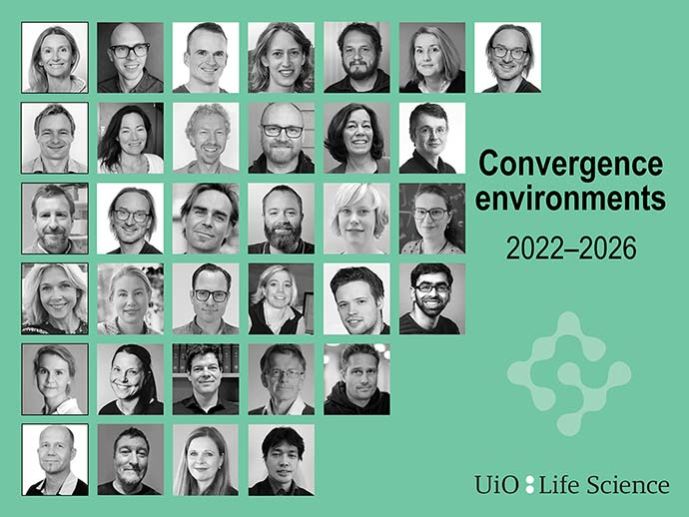Medication use during pregnancy, healthy aging, cancer, organoid technology, fibrosing diseases and cognitive function throughout life. These are societal challenges that will be examined by new interdisciplinary life science research groups at the University of Oslo.

UiO:Life Science will fund six new convergence environments 2022-2026.
These interdisciplinary research groups will solve grand challenges with methods from biology, bioinformatics, chemistry, computational biology, computer sciences, economics, genetics, immunology, languages, law, mathematics, medicine, musicology, pedagogy, physics, pharmacy, philosophy, psychology, special needs education and sociology.
- We have been in operation long enough to see results from this interdisciplinary approach, we see that it leads to new insights and new solutions and we are confident it will contribute to increased value creation in the field of life sciences in the long term, says Director of UiO:Life Science Carl Henrik Gørbitz.
24 PhD and post doctor positions
The six convergence environments will receive altogether 24 doctoral and postdoctoral positions as well as expenditures. In total, this amounts to an investment of approximately NOK 100 million over four years.
The positions will be placed at host units at six UiO faculties.
- It is rewarding to see that researchers from faculties and units that have never been involved before are now represented in the new convergence environments. I take this as a sign that we have succeeded in our efforts to make the convergence environment initiative known and attractive, something our existing convergence environments have contributed to by creating awareness around their interdisciplinary research, says Gørbitz.
A digital application process
The call was announced in November 2020, and the application process started with digital information meetings in January 2021. Researchers were encouraged to register their profiles and ideas online and then met for digital speed dating, which took place on 18 February and 2 March. The director gave his feedback on 35 sketches that were submitted in March.
Finally, the 34 full applications, were assessed first by international experts and then by an international panel before the board of UiO:Life Science made their final decision 4 November 2021.






